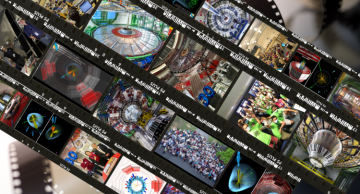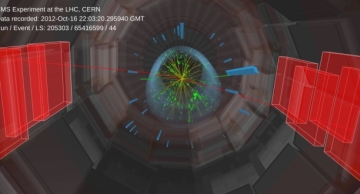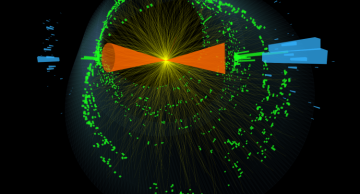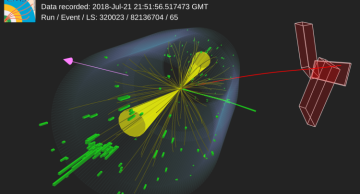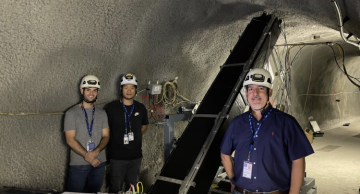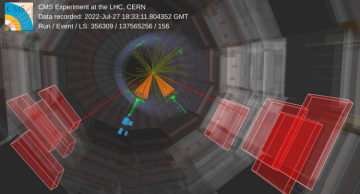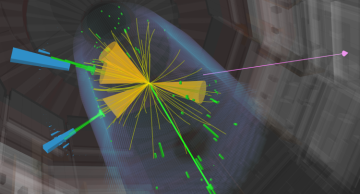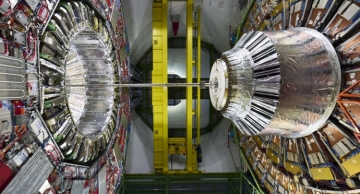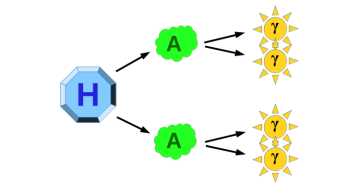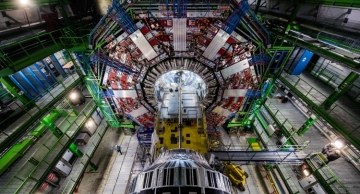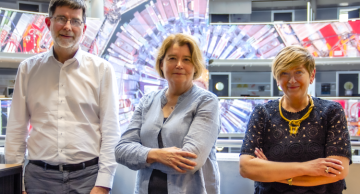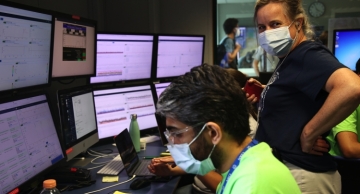If we consider 2022 as a season of the worldwide TV series called "The CMS Experiment at CERN", we would definitely say this has been highly rated and we can’t just wait for the next season to start.
As at every end of season, we have prepared for…
News
|
nstathak |
Collaboration
All proton-proton data collected by the CMS experiment during LHC Run-1 (2010-2012) are now available through the CERN Open Data Portal. Today’s release of 491 TB of collision data collected during 2012 culminates the process that started in 2014…
|
ajafari |
Physics
Imagine you are at a museum. After a long day admiring the exhibitions, you are exiting the museum. But to be able to get out, you will need to exit through the gift shop. The layout of the gift shop can be set up in several ways. Maybe you can take…
|
ajafari |
Physics
It was a bit more than 10 years ago that together with our colleagues from the ATLAS experiment, we at CMS announced the discovery of this new (and quite amazing) particle. Now, detecting a new fundamental particle is no easy feat; in these 10 years…
|
fbaldass |
Detector
This October, the first component of the milliQan detector has been installed on top of the CMS experimental cavern, and it is now taking data at the high energy of LHC RUN3.
The milliQan detector project was proposed as a new LHC experiment in 2016…
|
ajafari |
Physics
On 5 July 2022, the LHC surpassed the previous energy limits of experimental particle physics, breaking its own record by achieving stable proton-proton collisions at a center-of-mass energy of √s = 13.6 TeV. This marked the start of Run 3, the…
|
ajafari |
Physics
What is the Universe made of? Searching for the answer to this question has been the main quest of particle physicists. Part of the answer is provided by the highly-successful Standard Model (SM) of particle physics, whose last achievement is the…
|
fbaldass |
Collaboration
Have you ever observed the CMS logo?
It depicts the CMS detector with its concentric layers and four muon tracks.
CMS official logos. Left, the first logo; right, the celebrating LGBTQ+ edition
The design of the detector was developed 30 years ago…
|
ajafari |
Physics
While experimental results at the LHC continue to show good agreement with the standard model (SM), which is currently the best theory of fundamental particle interactions, the CMS physicists continue to turn up the heat on the SM. In fact, it is…
|
ajafari |
Physics
The heaviest known particle, the top quark, is one of our main gateways to search for new phenomena that are not addressed by our existing knowledge, the standard model of particle physics (SM), either through precision measurements of the top…
|
fbaldass |
Collaboration
The CMS collaboration welcomes its ninth management team: the new spokesperson, Patricia McBride, and the two deputies, Wolfgang Adam and Lucia Silvestris, will represent the Collaboration for the next two years.
With more than 5000 scientists,…
|
fbaldass |
Detector
While the CMS detector takes data 24 /7, physicists take turns in the control room every 8 hours, ensuring continuity of operations and keeping the detector running continuously. Experts located around the world are present at all times to respond…

